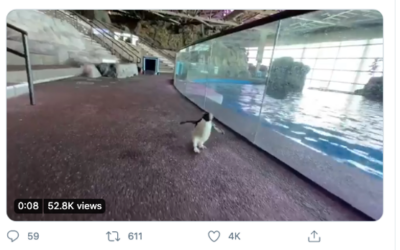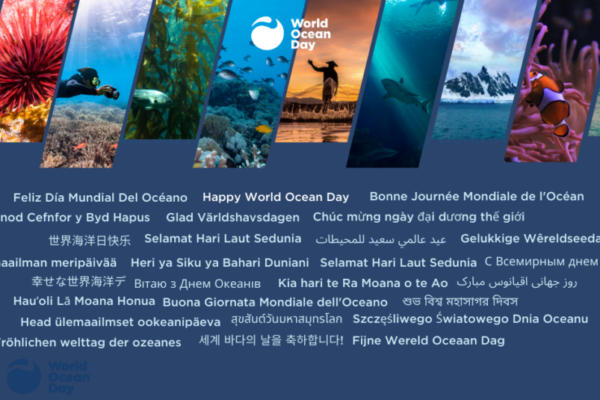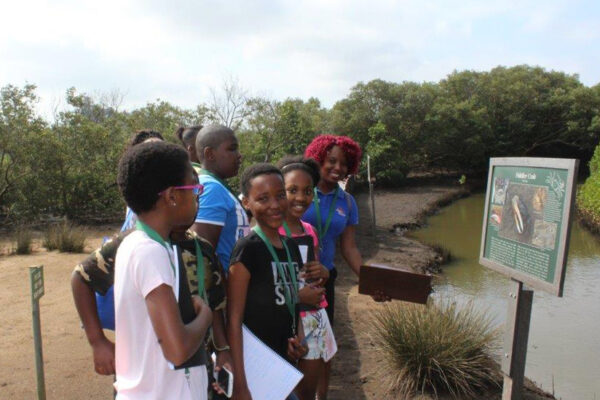As efforts continue to cope with the current crisis, we have been impressed by some of the innovative ways our aquarium and zoo partners have continued to engage their audiences and advance their efforts. We recently reached out to many of you and asked what is working well, and the following post contains many of your replies. Thank you for sharing, and for all the good work you continue to do even in these trying times.
- Shedd Aquarium: Created a series of penguin videos, shown here as seen on Twitter, that became so popular that they led to stories in the mainstream media, including a positive story in the Wall Street Journal that liked the story of the penguins with the need for federal funding for aquariums, and even spawned a sequel featuring the Governor of Illinois! Andrea Densham, Senior Director, Policy and Advocacy, noted that this was connected to a promising new campaign, #ACTwithShedd.
- Aquarium of the Pacific’s Director of Education, Dave Bader, also pointed to the importance of video content, noting their use of YouTube, with 30 minute live programming, as well as their, “Daily Bubble,” a one-a-day series with their actors and puppets that can be seen on the aquarium’s YouTube channel: https://www.youtube.com/aquariumofthepacific that is both, as Dave put it,v“turning out pretty good” and “getting a pretty good following.” He added that their marketing team is also doing well with live social media content, and Tik Tok too!
- Brevard Zoo’s Marketing and Communications Director, Andrea Hill, replied with reference to the realities related to caring for their animals and needing the funds to do so, noting this reality has been resonating well. Their approach still centers on “bringing joy” to their visitors while also “asking for money on our social media channels about every 4 to 5 days,” noting that these include asks for renewing memberships, symbolically adopting an animal, or purchasing items from their wish list. Andrea added that each “campaign” is usually launched via their email list with a post a couple days later. Check out their approach at https://www.facebook.com/BrevardZoo and org.
- California Academy of Sciences’s Chief Public Engagement Officer and Roberts-Wilson Dean of Education, Elizabeth Babcock, replied with pride about how quickly her team has pivoted to transform in-person educational programs into online versions, including a personalized Google Classroom for their high school interns, which is allowing them to continue to be mentored by their scientists and Steinhart Aquarium biologists; converting their in-person student classes to on-line offerings for their Rock Fund Program; and a Big Bang online event with a behind-the-scenes look at the Aquarium. And not to be forgotten some new online offerings, including a Breakfast Club.
- The Florida Aquarium’s Vice President of Education, Debbi Stone, replied that they’ve also had, “a lot of focus on the learning community, ensuring we’re reaching those stuck at home, including kids working through the challenges of e-learning.” She added that what has resonated the most in her view is, “the emphasis on the care we provide for our animals even when our doors are closed…if there was ever a time to highlight those stories and the passion of our Team Members…it sure is now.”
- Georgia Aquarium’s CMO, Martin Gray, replied that they’ve been looking across their communications channels to, “engage our fans and give them something to look forward to each day…and try to find new and fun ways to bring a smile to their faces.”
- Indianapolis Zoo’s Director of Membership & Engagement, Marisol Gouveia, highlighted a collaboration their Education and Public Relations groups in creating, “Species S’Cool,” a weekday email series for members and donors. Each daily email focuses on one species, and features animal facts and conservation messaging, what Marisol calls, “insider information on individuals from that species that live at the Indianapolis Zoo” along with activities that families can do together. Part of that includes a daily social media challenge that ties into the #BringingTheZooToYou hashtag and for which they mail Zoo prize packs. The response, she adds, “has been wonderful.”
- The Maritime Aquarium’s President and CEO, Jason Patlis, spotlighted how they created a full suite of educational programs for families within days of being closed. Operating on three paths, they created one set of educator-led, live, interactive programs for families with children ranging from pre-school to high school, with participants across 28 states and overseas. They also created a set of more formal remote education programs to be offered through schools as part of STEM education curriculum. The third path is their virtual aquarium with social media engagement. The family programs can be found here and their school programs can be found here.
- Monterey Bay Aquarium’s Chief Operating Officer, Cynthia Vernon acknowledged that, “ things are pretty fluid,” but that they’re finding success with their, “social media (including daily guided Meditoceans), narrating webcams and moving all our education programs and materials online,” adding that they are excited to see, “thousands of kids and families and teachers using our curricula as they try to continue learning at home.”
- National Aquarium’s Vice President of Conservation Programs, Laura Bankey, tipped as their top efforts, the creation of online opportunities for “peace/meditation/zen” through their live exhibit cameras; developing at home conservation-based activities for families; and maintaining connections to our animals through events, videos, etc. on Facebook and other channels, as well as a reconfigured home page that puts those activities front and center: https://aqua.org/
- Seattle Aquarium’s Director of Conservation Programs & Partnerships, Erin Meyer, flagged an enticing virtual engagement page on their website, where their visitors, “can still be delighted by the animals in our care, be mesmerized by our exhibits, learn about the marine environment, and take action.” On that last note, be sure to check their lineup for Earth Action Week!
- The Arizona-Sonora Desert Museum’s Director of Conservation Education & Science, Debbie Colodner, replied that they have been, “astounded by the engagement we’ve been generating with our social media and virtual education, but know that we also have a lot to learn.”
- Texas State Aquarium’s Vice President of Education and Conservation, Leslie Peart, flagged that they are planning a few virtual sustainable seafood events, “Seafood Wars” during which some of the local chefs who are their past winners share recipes using ingredients easily found during this stay-at-home period.




